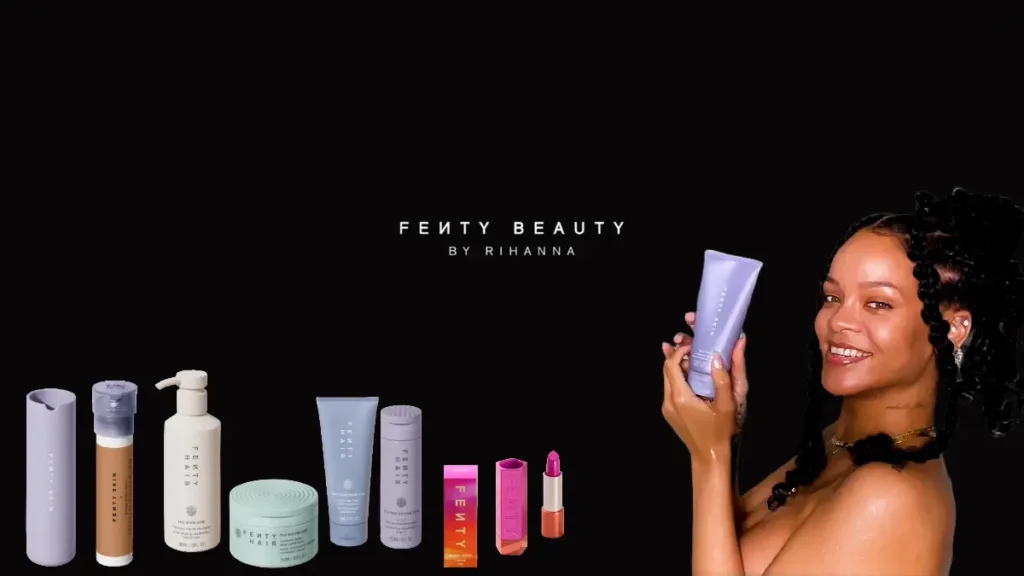Rihanna is not just a superstar. She is a phenomenon. Not just because she did the Super Bowl LVII Halftime Show in 2023. Nor because the Fenty fashion brand is also taking off with the Fenty x Puma Avanti sneaker coming out. It is just because how it is.
When she launched Fenty Beauty in 2017, she didn’t just introduce another celebrity makeup line. She started a mini revolution. For real. Known for her music, fashion, and undeniable star power, when Rihanna moved into the beauty space she redefined some industry standards. She placed focus on inclusivity and innovation, Fenty Beauty became a trailblazer, changing how brands approach diversity and representation.
Fenty Beauty is now 7 years old. But is it truly a revolution in the beauty world? Or is it simply another half-baked celebrity venture? The rise of Fenty Beauty and its impact on the industry is well documented but what is the secret of this enterprise’s success? Apart from the obvious of course.
Music Star & Media Celebrity
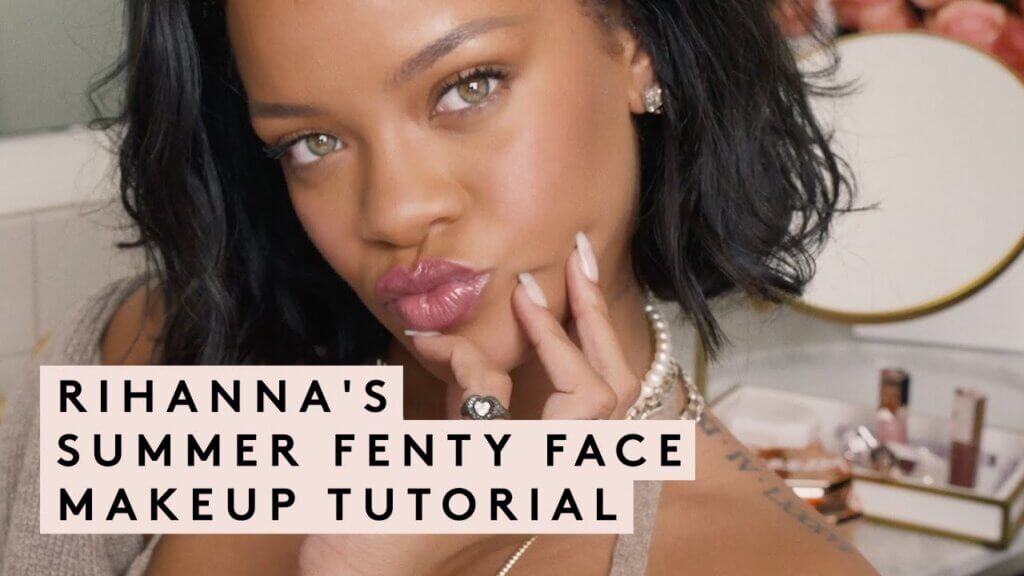
Rihanna’s entrance into the beauty world was met with excitement. To say the least. As an international superstar with a fearless approach to style, she was already a trendsetter before Fenty Beauty launched. Her personal brand (based in self-expression, boldness and authenticity) translates seamlessly into her beauty line. With 100 million Instagram followers at the time of launch, Rihanna’s reach allowed her to promote her products directly to a huge engaged audience. This access, combined with her ability to tap into the desires of her fanbase was critical to the brand’s early success.
But Rihanna’s celebrity status did more than just draw attention. Her down-to-earth, relatable persona made customers feel like they were a part of her skincare world. “I wanted everyone to feel included. That is the real reason I made this line,” she said at the launch of Fenty Beauty, emphasising her commitment to diversity. Rihanna was not just selling makeup; she was offering a way for people to feel seen and celebrated in their skin.
Launch & Growth
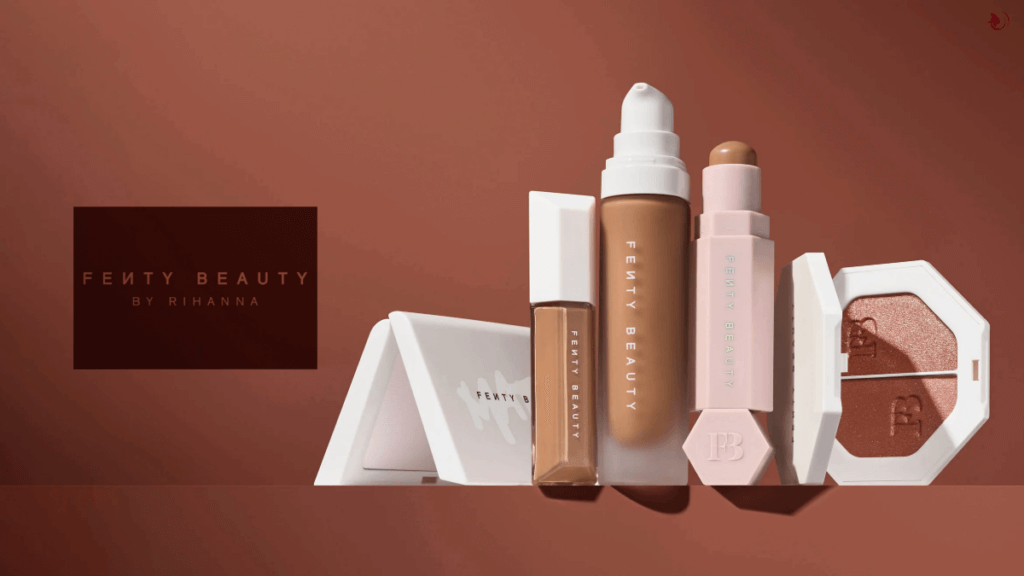
Fenty Beauty made a historic debut in 2017. They had an unprecedented 40-shade foundation range, a move that set the tone for the brand’s commitment to inclusivity. It was an immediate success. It was praised for offering shades that catered to the often-overlooked deeper skin tones, as well as lighter tones with different undertones. This “beauty for all” ethos became the cornerstone of Fenty Beauty’s identity and gave birth to the term “the Fenty effect,” where other beauty brands scrambled to expand their shade ranges to avoid being left behind.
Fenty Beauty did not stop at foundations though. The brand quickly expanded into other areas, including concealers, highlighters, lip products and eyeshadow palettes. Each product launch was a strategic, highly anticipated event, often accompanied by social media buzz. Collaborations with global retailers like Sephora provided a strong distribution network, while Fenty Beauty’s direct-to-consumer model keeps the brand accessible worldwide.
Rihanna’s decision to launch the brand in her home country, Barbados, was both a strategic and sentimental move. She emphasised her connection to the region, saying, “Barbados is a huge part of who I am, and launching Fenty Beauty there felt like coming full circle.” This move was celebrated by her Caribbean fans and underscored the brand’s commitment to global inclusivity.
Fenty Beauty’s Impact
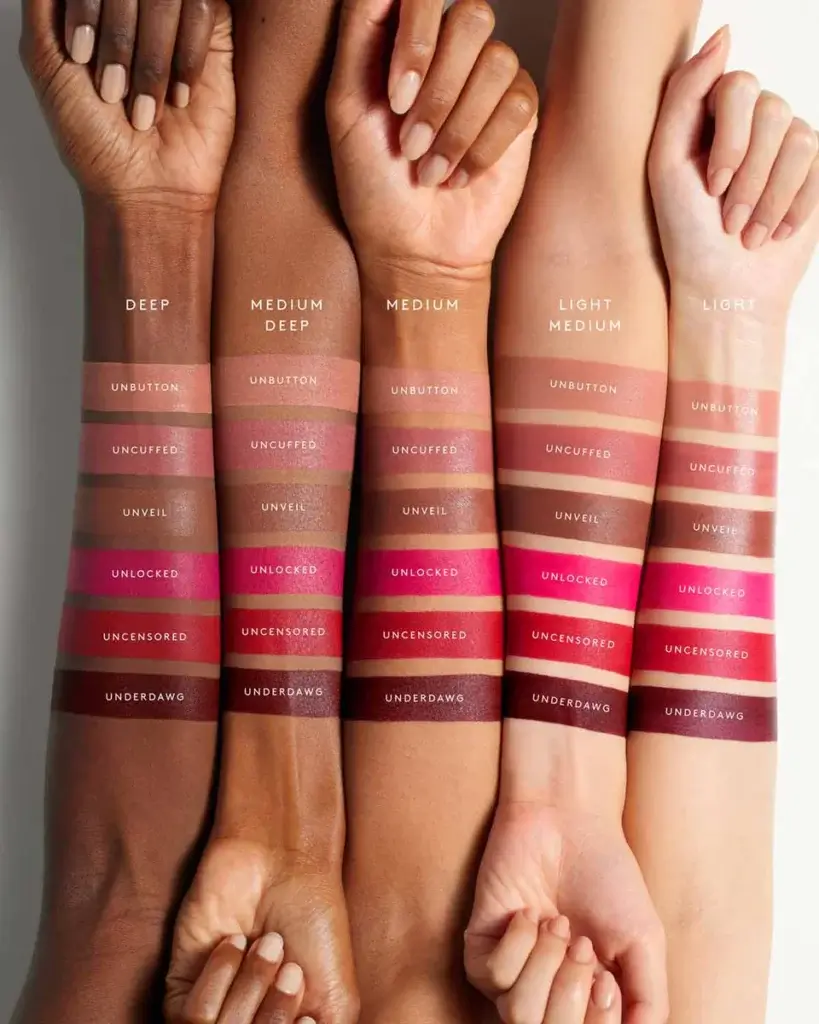
Fenty Beauty’s influence on the beauty industry cannot be overstated. The brand’s inclusive shade range raised the bar for the entire sector, pushing competitors to reassess their offerings. Brands that had previously released limited shade options were now expected to follow Fenty’s lead or face backlash from increasingly vocal and informed consumers. “The Fenty Effect” forced companies to rethink not only their product lines but also their marketing strategies.
Fenty Beauty also disrupted the way brands communicate with their audience. Rihanna’s use of social media to tease launches and interact with her customers created a sense of community around the brand. The company was able to cut through the noise of the saturated beauty market. How? By offering products that filled real gaps and by keeping its voice refreshingly genuine.
In 2024, Rihanna announced the launch of Fenty Hair, set for release on June 13. This expansion into haircare aimed to provide a line that strengthens and repairs all hair types. Another sign of Fenty’s commitment to inclusivity that extends beyond makeup. The company’s reach continues to grow.
Fenty Beauty’s Inclusivity, the Key Differentiator
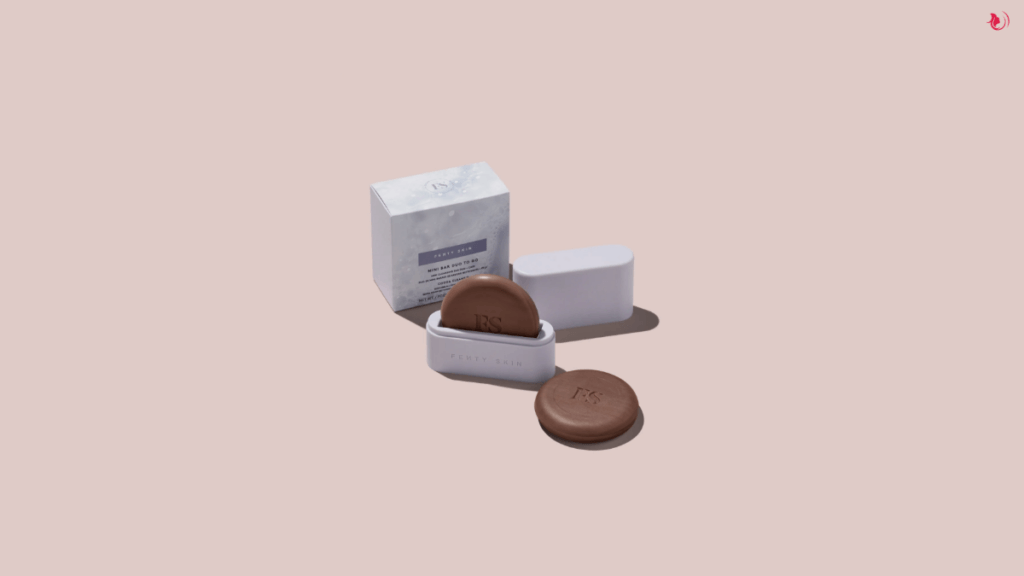
Inclusivity is Fenty Beauty’s biggest selling point. By far. The brand’s foundation range, which has since expanded to 50 shades, made headlines for its representation of people with deep skin tones. Traditionally this is a group underrepresented in the beauty industry. This focus on diversity did not stop at foundation. Lipsticks, highlighters and many more Fenty Beauty products have consistently prioritised what looks good on all skin tones.
Rihanna herself has been vocal about her approach to inclusivity. “We have this saying at Fenty Beauty: ‘Beauty for all,’ and I mean it,” she said. It is not just a marketing slogan. Because it is baked into the DNA of the brand. Fenty’s advertising campaigns reflect this philosophy, featuring models of all ages, sizes and ethnic backgrounds. The brand’s ability to popularise real-world diversity is something consumers were looking to identify with. And guess what, Fenty Beauty delivered. On multiple levels.
A Touch of Critique
Fenty Beauty like any other skincare brand has not been immune to criticism. Some have argued that, beyond its inclusive shade range, the product formulations themselves are not groundbreaking. A few customers have also raised concerns over product quality, especially with items like the “Killawatt” highlighter being too glittery or the texture of certain lipsticks feeling inconsistent.
In terms of marketing, some have critiqued the brand for not being as sustainable or eco-friendly as they would like, especially in an industry where environmental consciousness is becoming a priority. Packaging waste and the lack of refillable products have been sticking points for some consumers who expect more from modern beauty brands.
Despite these issues, Fenty Beauty has largely been able to sidestep major controversies, thanks in part to Rihanna’s ongoing involvement and her ability to stay connected with the brand’s community.
The Future of Fenty Beauty
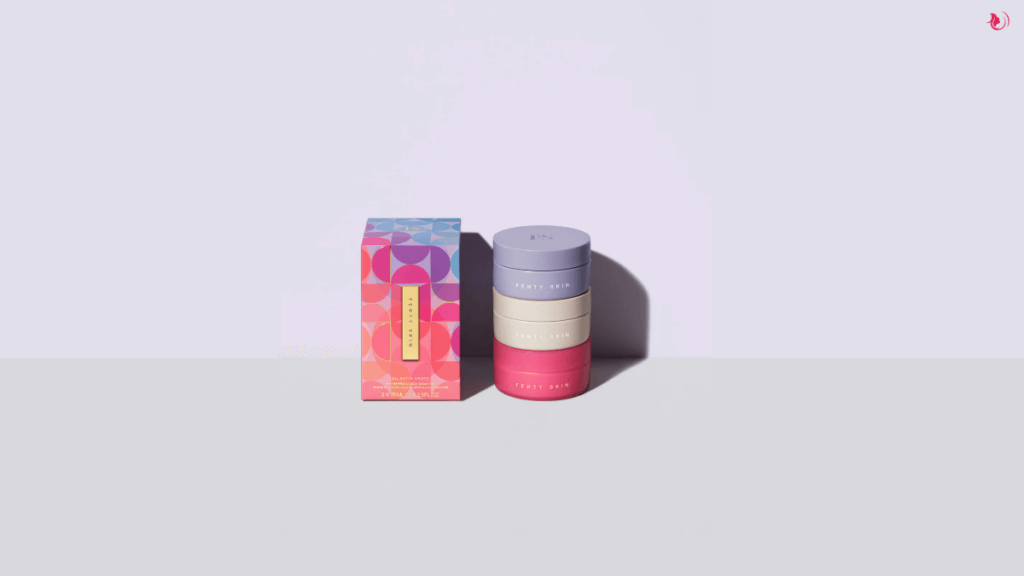
Rihanna is constantly expanding her empire. She is going into haircare, as well as rebranding Savage x Fenty (her lingerie brand). And there is no doubt that the Fenty umbrella will continue to grow. Rihanna has expressed her vision for expanding into more markets globally and introducing new product categories. Fenty Hair, designed to cater to diverse hair types, is poised to follow in the footsteps of the inclusive ethos of Fenty Beauty. It will do this by offering products that aim to repair and strengthen hair for everyone.
Fenty Beauty is bound to face more challenges as it grows. The beauty market is becoming increasingly saturated. Other celebrity brands like Kylie Cosmetics and Rare Beauty are competing for consumer attention. Additionally, sustainability pressures will likely push Fenty to rethink its packaging and environmental impact.
Long-term, the main challenge will be staying relevant. In an industry where trends change rapidly and customer loyalty can be fleeting this will be key. However, with Rihanna’s authentic connection to the brand and her dedication to inclusivity, Fenty Beauty is well-positioned to remain a dominant force.
Culture Shock
Fenty Beauty is more than just another celebrity beauty brand. It is more of a cultural movement. Rihanna has used her platform not only to sell makeup but to redefine what beauty care looks like in the modern world. By prioritising inclusivity and celebrating diversity, Fenty Beauty has left a mark on the beauty industry. While the brand has room for improvement, particularly in areas like sustainability, its commitment to representing all skin tones and types has set a new standard.
In an industry that often feels overcrowded, Fenty Beauty stands out as an example of what the future of beauty can be. More inclusive, innovative and authentic. And if Rihanna’s success is anything to go by, authenticity wins.
The only last frontier of all these celebrity-backed enterprises is the test of time. Will they be able to survive when the founders are too old or not there to promote the values? But that is something more relevant for the next generation to consider.

